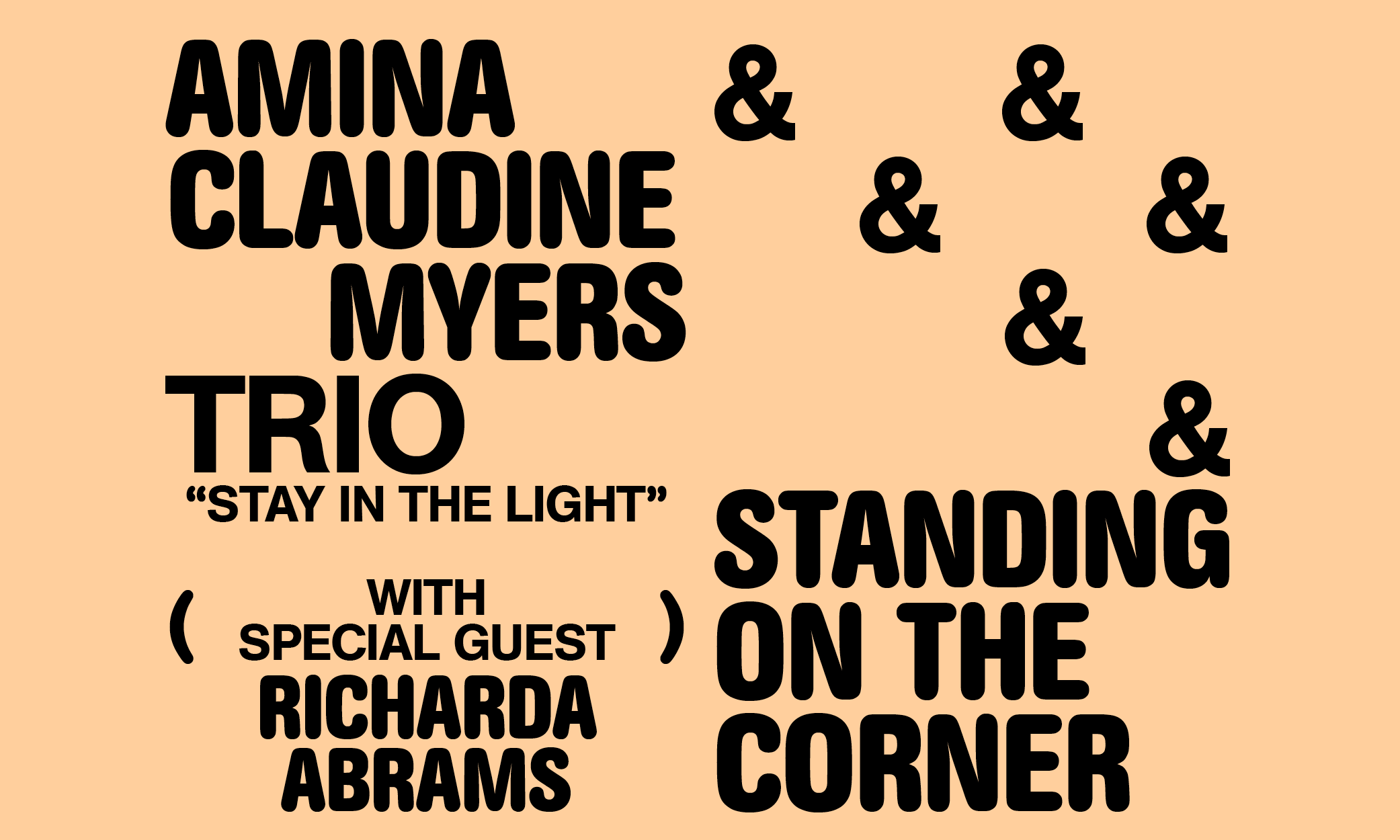Amina Claudine Myers Trio with special guest Richarda Abrams + Standing on the Corner

99 Scott
Amina Claudine Myers (b. 1942) is a multifaceted keyboardist, vocalist, composer, band-leader, and a member of the Association for the Advancement of Creative Musicians (AACM), among the early women affiliated with that historically influential independent Black Arts institution. Though Myers has lived and worked in New York City for more than forty years, her initial work in creative, improvised music took place in Chicago. There she met the pianist/composer Dr. Muhal Richard Abrams, one of the AACM’s founders, and began to compose for instrumental and vocal ensembles. At the same time, she developed a reputation as a first-rate accompanist to both the great jazz players of a previous era and to the budding experimentalists of her own generation. Myers’s original work has often centered on piano, organ, and vocalizations, while remaining grounded in the Great Black Music cornerstones of the blues and church spirituals and embracing the totems of both contemporary free jazz improvisation and European classical-music rigidity. This has resulted in extensive, often thematic pieces full of poetry and dance, in addition to choral and narrative elements, qualities that she has also accentuated in her work as a music educator and in the theater (most famously as an early assistant musical director for the 1978 Emmy Award-winning Broadway musical Ain’t Misbehavin’). Myers continues to gig regularly, and is beloved as one of the foremost practitioners of the Hammond B-3 organ within the music often called jazz. For Blank Forms, Myers will play in a trio, alongside bassist/vocalist Jerome Harris, a long-time member of Sonny Rollins’s group, and drummer Reggie Nicholson, another AACM member who's been playing with Myers since the early 1980s. They will perform a newly commissioned piece entitled “Stay in the Light,” a partly notated, partly improvised composition that highlights her spiritual connection to the universe through multiple characters, personalities, and instruments. “Stay in the Light” will be performed with special guest actress, vocalist, and playwright Richarda Abrams.
The New York collective Standing on the Corner often calls itself an “art ensemble,” a moniker that helps outline its approach to music and performance, while hinting at its creative roots and perspective. With composer, conductor, and co-founder Gio Escobar (b. 1995) at the center of a constantly rotating band line-up that’s seldom the same for consecutive performances, each of which might feature a radically different concept and repertoire, SOTC moves freely yet decisively between jazz improvisations, dub excursions, garage-noise freak-outs and lo-fi hip-hop collage, giving prescience to Hua Hsu’s observation that its music sounds like “field recordings from a vanishing city.” SOTC’s work is deeply wedded to this sense of place. Since they began operating in 2014, its members, predominantly from the US and the Caribbean, with Escobar emphasizing his Nuyorican heritage, have become key representatives of New York’s new interborough musical avant-garde, a leading edge of a young creative Blackness. Just as the collective’s sound is in constant, determined flux, so are the media through which it’s presented: SOTC’s four albums-cum-mixtapes, a couple of singles, and occasional short-run films/video installations, are as central to the group’s legend as its concerts and happenings, which can take place in a club or DIY space, at a museum or an art house theater, each carrying its own specificity of liberative intent. The group cultivates a changing aesthetic using the perceptivity of hip-hop natives to make historical reappraisals through a contemporary lens, filtering both via the dignity of local community values. The reason Standing on the Corner has developed a wide cast of admirers—from underground jazz experimentalists and popular musicians to gallerists and curators—is the group’s clear illustration of these connections as a constant ingredient in the continuum of African Diasporic music. And a renewal of the idea that the “art ensemble” is the best way to get these ideas over. "Que Viva Puerto Rico Libre!"
